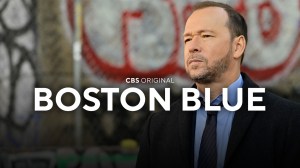A year after the coronavirus pandemic first reached North America, toilet paper shortages could be coming again — but not because of COVID-19. Supply lines around the world have been disrupted by a cargo ship blocking the Suez Canal in Egypt. According to a report by Bloomberg News, the prolonged delay might impact the toilet paper industry.
Bloomberg spoke to Walter Shalka, the CEO of a wood pulp company called Suzano SA, based in Brazil. He said that his company was not struggling to transport raw material which is typically used to manufacture toilet paper. This is just one of the items endangered by the Suez Canal blockade, but a familiar one for those who weathered last spring’s toilet paper panic. It’s not hard to see why the blockage has people worried about the shortage again.
Videos by PopCulture.com
Schalka said that the blockage could easily begin to impact the global toilet paper supply somewhere down the line — assuming toilet paper producers don’t have massive inventories of their raw materials. On average, 50 ships per day pass through the Suez Canal, but they have now been blocked since Tuesday, March 23. Container shipping expert Lars Jensen told The Mirror that just about every household item will be impacted by this delay.
“Basically anything you see in the stores,” he said. Jensen noted that most of the products impacted by this delay have already been troubled by the pandemic, and have not fully recovered. He said: “This takes capacity out for a system that is already starving for capacity.”
It will take time for these hiccups to reach the manufacturing world, then the distribution world, and, finally, the customers themselves in the retail world. In the meantime, every hour that the canal remains blocked makes it worse. However, experts say that the canal is not expected to be freed up any time soon.
“We can’t exclude it might take weeks, depending on the situation, said Peter Berdowski, CEO of Boskalis on a Dutch TV broadcast. “It’s like an enormous beached whale. It’s an enormous weight on the sand. We might have to work with a combination of reducing the weight by removing containers, oil and water from the ship, tug boats and dredging of sand.”
The 200,000-ton cargo ship ran aground across the canal on Tuesday due to high winds. This has led to a global trade crisis, with other ships stuck behind the blockage hastening to re-route. Efforts to free up the Suez canal are ongoing.









